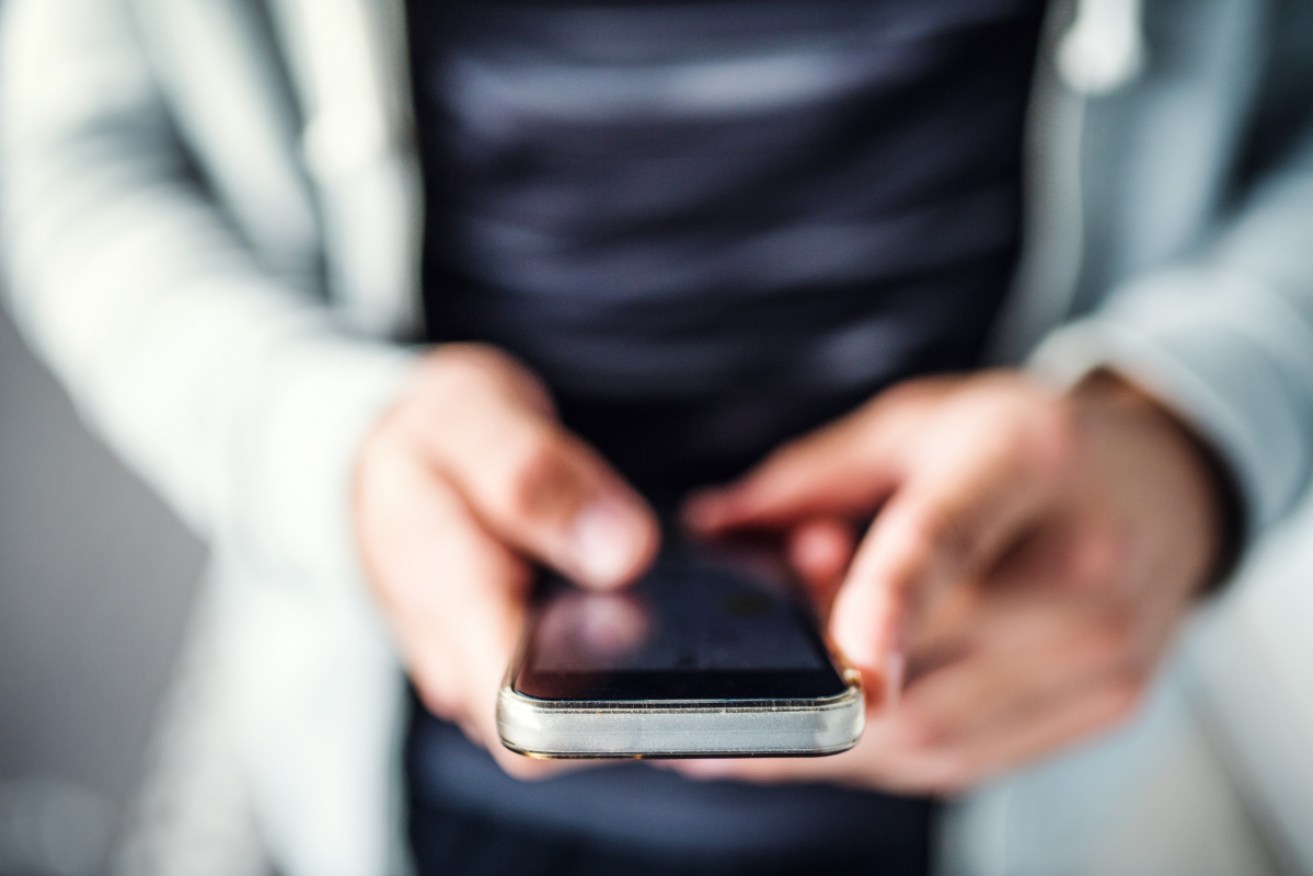‘Remarkable’: How a simple text message could increase COVID-19 vaccine uptake


Text messages were shown to increase vaccine uptake in a study in the US. Photo: Getty
Would you book a COVID-19 vaccine appointment if you received a text message saying you were now eligible?
Thousands of Americans did, according to a new study that has prompted questions around whether Australia should follow suit.
But our top vaccine rollout commentators say our supplies need to be bulked up before we start rolling out text messages.
In the US study, more than 6700 people who were told via text that the vaccine had “just been made available for you” at UCLA Health had encouraged them to “claim your dose today” and booked to have their first dose within six days.
The University of California researchers behind the study, which was published on Tuesday in the journal Nature, found almost 1000 recipients had the jab administered within one month of receiving the text.
The language used in the text attempted to instil in the recipients a sense of ownership over the vaccine.
“We confirmed via online experiments that such language would make patients feel more strongly that the vaccine was already theirs,” the researchers wrote.
Receiving a text reminder boosted appointment rates within six days by about 84 per cent and vaccination rates within four weeks by about 25 cent.
“The fact that the effect of receiving one reminder on vaccinations at any location could last one month is remarkable, considering that patients may have been exposed to numerous sources of communication about the vaccine during that period,” the paper said.
Second text sealed the deal
Those who didn’t book for a COVID-19 vaccine a few days after the text reminder may have forgotten, been procrastinating, or been more hesitant than those who got vaccinated, the researchers suggested.
So they sent them a second reminder.
It increased patients’ likelihood of scheduling the first-dose appointment within six days by about 53 per cent and of obtaining the first dose within four weeks by about 17.23 per cent.
“Although small, these effects are noteworthy, as they are documented within a more hesitant population,” the researchers wrote.
Their follow-through reminders could result in up to six million extra people being vaccinated within one month, they said.
The authors found that supplying people with information addressing vaccine hesitancy, including a link to a two-minute video on COVID-19 and vaccine effectiveness had no additional benefits.
Would this work in Australia?
Professor Julie Leask, chair of the World Health Organisation’s Behavioural and Social Drivers of Vaccination working group, said evidence from before the pandemic showed sending reminders to people could increase vaccination uptake.
But sending people messages that made them feel like a dose was reserved for them would only work once there was sufficient supply in any one clinic, she said.
“Having a good supply of both AstraZeneca and Pfizer would be an ideal environment in which we can do that,” Professor Leask said.
“Not everyone will turn up, so you then have that issue of potential wastage.”
Professor Leask said the SMS reminder system could be a good option “down the track” when individuals have yet to receive a first or second dose and are late to do so.
She said messages that highlight the community benefits of receiving a vaccine could also work – particularly among young people who may consider themselves at lower risk of getting sick from COVID.
“The message that it can protect their loved ones can be more compelling than a personal benefit message,” she said.
Meanwhile, Australian Medical Association president Dr Omar Khorshid said any measures that are likely to improve vaccination rates should be considered as vaccine availability increases.
“General practice is the backbone of our vaccination program and GPs have sophisticated clinical software systems that they are already using to identify eligible patients and contact them to book an appointment, with follow-up reminders often made by phone, text message or email,” he said in a statement to The New Daily.
“When patients cancel or are no-shows, they also have reserve lists to ensure that this spot is given to someone else and vaccines are not needlessly wasted.”
A seamless booking process is a must
The international evidence suggests “no single thing” will have an outsized effect on vaccine uptake as there are many reasons why people refuse vaccination, Professor Leask said.
And even the best reminders in the world are not going to work if it’s hard for people to book an appointment or visit a clinic.
“Once you give them a link to book an appointment, it needs to be extremely easy to go through that process,” Professor Leask said.
“There’s no point in having a reminder for a booking system that is clunky and puts a lot of what we call ‘friction’ in the process, where you’ve got to pass through multiple points to actually get to your appointment.”








